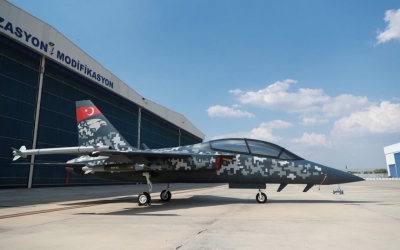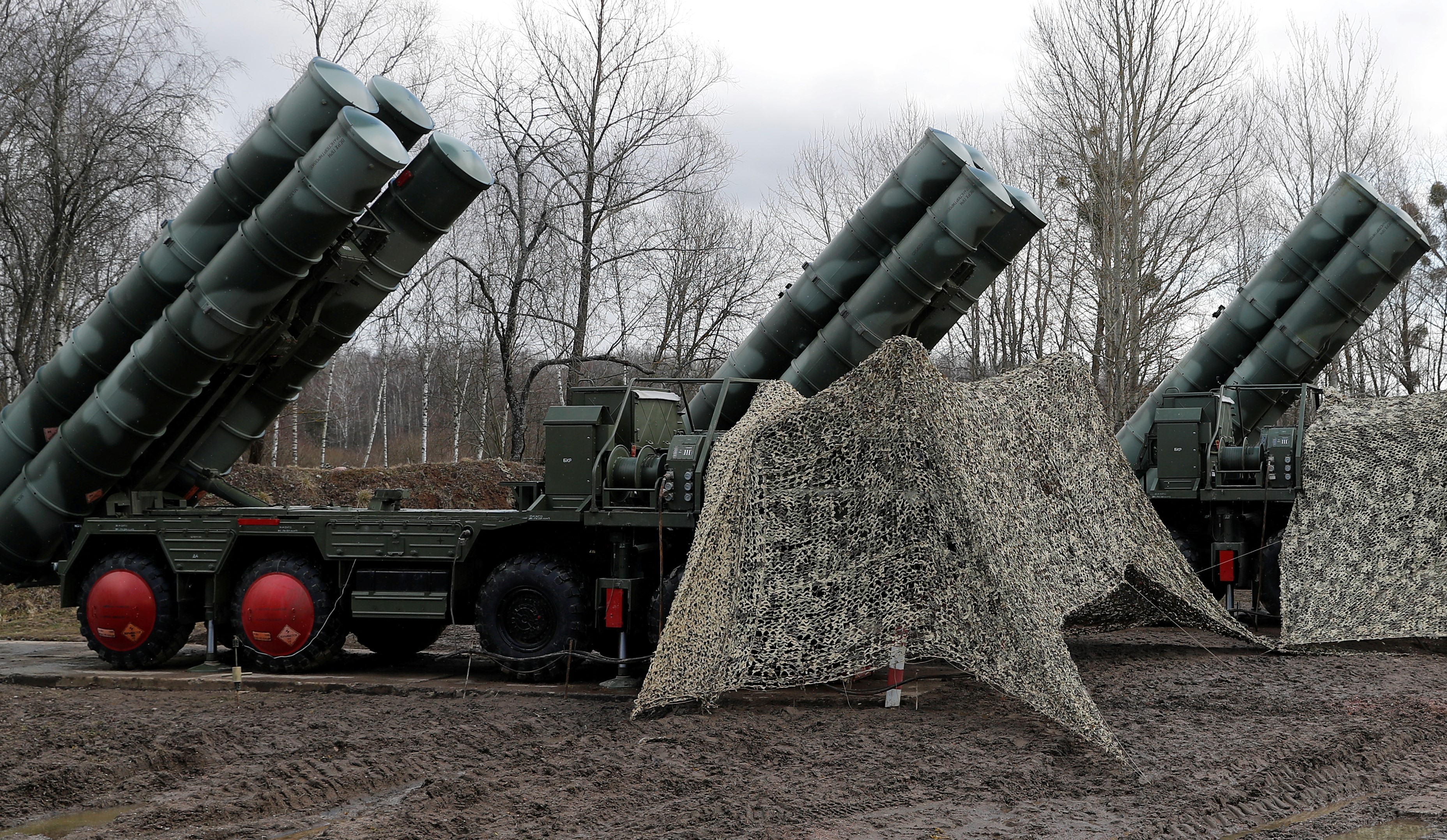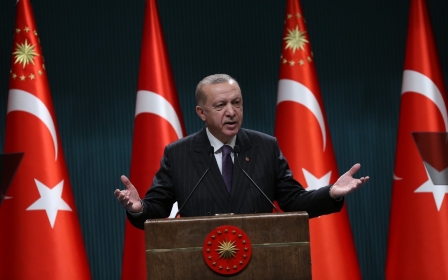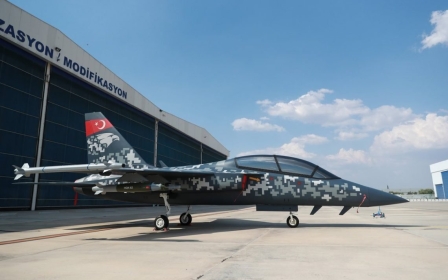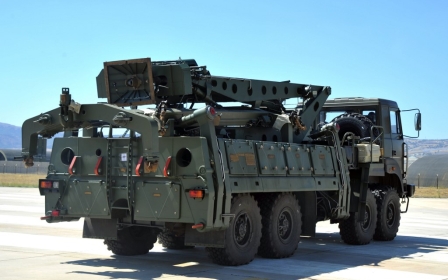Turkey will not 'turn back on' S-400 missile system after US sanctions
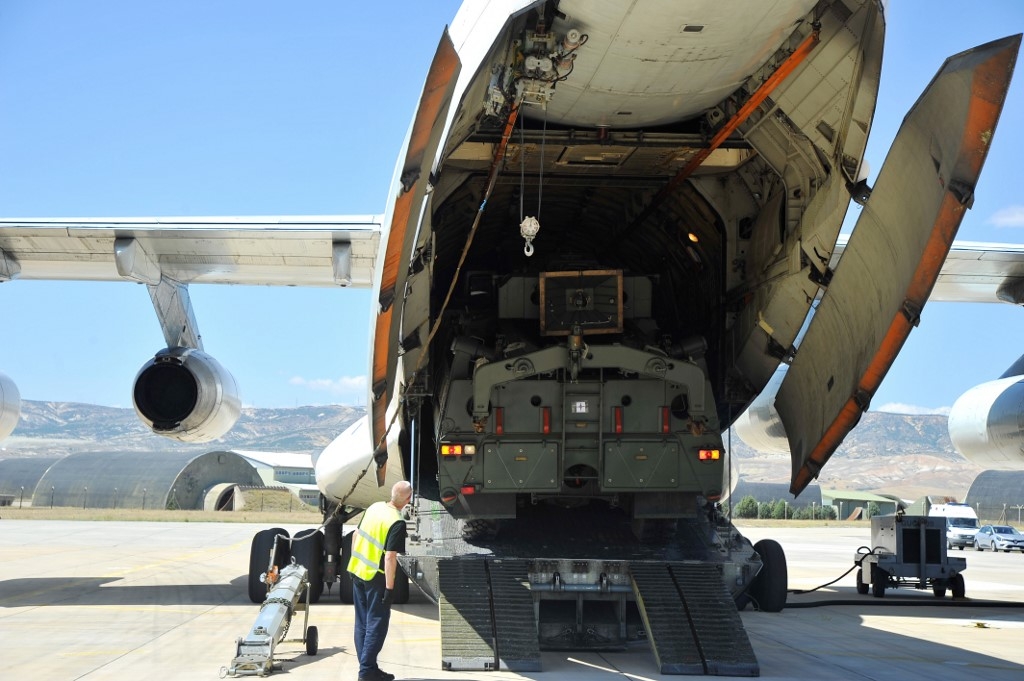
Turkey said it would not turn back on the S-400 missile system after US President Donald Trump imposed sanctions on Ankara for activating the weapons system.
Turkish Foreign Minister Mevlut Cavusoglu on Thursday strongly criticised the S-400 sanctions and said that Turkey would not back down on the S-400s.
New MEE newsletter: Jerusalem Dispatch
Sign up to get the latest insights and analysis on Israel-Palestine, alongside Turkey Unpacked and other MEE newsletters
"Had we wanted to step back from them, we could have done so before these sanctions," Cavusoglu said during a live interview on Turkey's Kanal 24 channel.
He added that Turkey would be evaluating the US sanctions and said he did not expect them to impact the local defence industry.
Cavusoglu's comments were echoed by Ismail Demir, who heads the sanctioned Presidency for Defence Industries (SSB), the country's military procurement agency.
Demir noted that the sanctions would not "would not impact past export licenses granted by the US."
Earlier on Wednesday, Turkish President Recep Tayyip Erdogan responded to US sanctions against Ankara and called it an "open attack" on its sovereignty.
The sanctions, required under a 2017 law that aims to limit Russia's military influence, were lighter than had been feared, but Erdogan noted that they had never before been used against a fellow member of Nato.
"Sanctions are imposed on our country, a Nato member. What kind of an alliance is this?" Erdogan asked during a televised speech in Ankara.
Washington had already punished Ankara in July by barring it from developing parts for and acquiring America's next-generation F-35 fighter jets.
This week's punitive measures against the Presidency for Defence Industries (SSB), the country's military procurement agency, included a ban on all US export licences and loan credits for the agency.
Its president, Ismail Demir, and three other executives were also barred from travel to or holding assets in the US.
The State Department said the sanctions "are not intended to undermine the military capabilities or combat readiness of Turkey... but rather to impose costs on Russia in response to its wide range of malign activities".
Tensions between Washington and Ankara
US officials have repeatedly said that Turkey was offered the American system, but that those negotiations broke down after Ankara demanded to also obtain proprietary production and operations data - trade secrets - about the Patriots.
Since the S-400 defence system has the ability to "learn" flight patterns and other data about aircraft flying overhead, Washington views a Nato ally buying the Russian defence system as a security threat and had previously asked Ankara to pull out of the deal. It also has concerns over Turkey providing funds to the Russian defence industry via the purchase.
The sanctions are only the latest manifestation of a series of rifts between the two countries, with the Nato allies also in disagreement over Syria, Libya and the eastern Mediterranean Sea.
While Trump has had mostly warm ties with Erdogan, hostility among US legislators towards Turkey has been growing amid its increasingly aggressive foreign policy.
Meanwhile, President-elect Joe Biden, who once described Erdogan as an "autocrat", is expected to be tougher on Turkey than his predecessor.
This article is available in French on Middle East Eye French edition.
Middle East Eye delivers independent and unrivalled coverage and analysis of the Middle East, North Africa and beyond. To learn more about republishing this content and the associated fees, please fill out this form. More about MEE can be found here.


